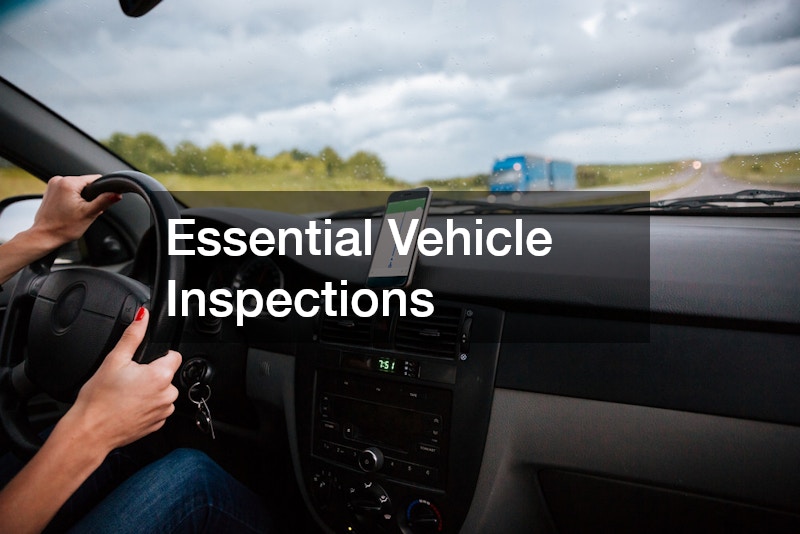
Owning an SUV brings a lot of benefits: spacious interiors, powerful performance, and off-road capabilities make them a popular choice among drivers. However, with these perks come unique expenses that every SUV owner should consider before making the investment. From routine maintenance and repairs to customizations, fuel, and insurance, owning an SUV is often more costly than owning a smaller vehicle. Here’s an in-depth look at these expenses to help you budget and manage the ownership costs effectively.
Routine Maintenance and Tune-Ups

SUVs are larger, heavier, and more complex than standard cars, meaning that maintenance costs are often higher. Regular maintenance, like tuneups, oil changes, and tire rotations, is essential for keeping your SUV running smoothly. Each of these services ensures that critical components—such as the engine, transmission, and tires—are functioning properly, which can prevent costly breakdowns and improve your SUV’s longevity.
While tuneups for sedans or smaller vehicles may cost between $100 and $250, SUVs often require more extensive service. Depending on the model, a basic tuneup for an SUV might cost between $150 and $400, with more advanced services reaching up to $1,000. Additionally, regular oil changes and tire rotations are vital, especially if you’re using your SUV for off-road driving or towing, as these activities can accelerate wear and tear.
Brake System Maintenance
One of the most important aspects of maintaining your SUV is the braking system. Due to their extra weight, SUVs typically place more strain on their brakes, causing faster wear of brake pads and rotors. Frequent stops, high-speed braking, and towing add to this wear. Visiting a brake shop for routine brake checks and replacements ensures both safety and optimal performance, particularly for large SUVs. Brake pad replacements, which are more frequent in SUVs, can cost between $250 and $500, depending on the type of brake system.
Tires and Tire Rotation
SUV tires are generally larger and more robust than those on sedans, which makes them more expensive. Quality tires that fit the specifications of an SUV can cost between $150 and $300 each, so expect to spend at least $600 on a new set. Additionally, regular tire rotations are crucial for even wear, and they can help your tires last longer. It’s best to rotate your tires every 5,000 to 7,500 miles, and this service generally costs between $20 and $50 per session.
Fluid Checks and Changes
SUVs have various fluids—engine oil, coolant, transmission fluid, and brake fluid—that need regular checking and replacement. These fluids keep your SUV running efficiently, and neglecting them can lead to costly repairs. Engine oil should be changed every 3,000 to 7,500 miles, depending on your SUV’s make and model. Transmission fluid replacement is usually less frequent but can be quite expensive, ranging from $150 to $300.
Essential Vehicle Inspections

Another routine expense for SUV owners is the vehicle inspection. These inspections vary depending on state regulations, but generally, annual or bi-annual inspections are required to ensure your SUV meets emissions standards and is safe for road use. The cost of inspections can range from $15 to $75, and more thorough inspections may uncover issues like rust, leaks, or brake deterioration.
Vehicle inspections are essential, as they can help you identify potential problems early on. Catching these issues before they turn into major repairs can save you a significant amount of money. Additionally, some states require emissions testing, which may incur additional fees.
Repair Costs and Local Auto Repairs
General Repairs and Local Auto Repair Shops
SUVs are larger and more complex, which means general repair costs can be higher compared to smaller vehicles. Finding a reputable local auto repair shop or auto mechanic with experience in SUVs is important for addressing common issues. Local repair shops can handle everything from minor fixes like replacing spark plugs to more involved repairs, such as suspension work or drivetrain repairs. SUVs often experience wear on components like suspension parts, wheel bearings, and differentials, all of which can add up to significant costs over time.
Suspension repairs, for instance, are typically more frequent in SUVs that are used for off-road activities. A full suspension overhaul can range from $500 to $2,000, depending on the extent of damage. Similarly, wheel bearings in SUVs endure more stress, often costing between $150 and $350 each for replacement.
Auto Collision Center Repairs
Accidents and fender benders are unpredictable but can lead to significant repair expenses. After an accident, visiting an auto collision center is often necessary to restore bodywork, alignment, and key safety features. Due to the size and structure of SUVs, body repairs can be more labor-intensive and costly than for smaller cars. Body panel replacements, bumper repairs, and frame straightening are common services offered at collision centers.
A simple bumper replacement can cost between $500 and $1,000, while more extensive repairs involving the frame can exceed $5,000. If an accident results in minor dents, paintless dent repairs are a cost-effective solution that can restore your SUV’s appearance without requiring a full repaint.
Auto Glass Tinting and Repairs
SUVs have more glass surface area, meaning that auto glass tinting or replacement can be more expensive. Tinting not only improves privacy and enhances comfort by reducing glare and heat inside the cabin, but it also helps protect the interior from sun damage. Depending on the quality and darkness of the tint, prices can vary, with full SUV tinting jobs generally costing between $200 and $600.
If you ever need to replace a windshield or windows, expect to pay more than you would for a smaller vehicle. A typical windshield replacement for an SUV may range from $250 to $400, while window replacements can add up, especially for larger models with more glass.
Paintless Dent Repairs
Dents and dings are nearly inevitable, especially if you take your SUV off-road or drive in areas with heavy traffic. Paintless dent repairs offer a quick and affordable solution for minor dents that don’t compromise the paint. The process involves reshaping the metal without damaging the existing paint, and it typically costs between $75 and $150 per dent, making it a budget-friendly option for small aesthetic repairs. Paintless dent repairs can also prevent rust by preserving the paint’s integrity, adding to your SUV’s longevity.
Customization and Upgrades

Audio and Entertainment Systems
For SUV owners who frequently take family trips, upgrading the audio and entertainment systems can significantly enhance the driving experience. Advanced infotainment systems, sound systems, and rear-seat entertainment setups can create a more enjoyable environment for passengers.
While these upgrades can elevate the SUV’s overall appeal, they do come with extra costs. Basic audio system upgrades may start at around $500, while a fully integrated infotainment system with premium sound could cost upwards of $2,000.
Appearance Modifications
SUVs are popular for customizations like larger wheels, lifted suspensions, custom grilles, and roof racks. These modifications enhance the SUV’s aesthetic appeal and add utility for off-road trips or storage. Larger wheels, for instance, improve ground clearance and can give your SUV a more aggressive look, but they come at a cost. Custom wheels can range from $150 to $500 each, with installation adding to the final bill.
Roof racks are also a popular addition, allowing for extra storage space during road trips. A basic roof rack costs around $100, but high-quality racks designed for heavy-duty use can go up to $500 or more. These modifications often require specialized installation, which adds labor costs and may impact fuel efficiency due to added weight.
Long-Term Care and Preventive Maintenance
Scheduled Tuneups and Preventive Measures
Routine tuneups and preventive care are key to extending the life of your SUV. Regular checks and part replacements, like spark plugs and air filters, can prevent performance issues and save you money in the long run. For SUVs used in rough conditions or for heavy-duty tasks, tuneups should be more frequent, as these activities place additional stress on the engine, suspension, and drivetrain.
Replacing spark plugs every 30,000 miles and timing belts every 60,000 miles are standard maintenance tasks that keep your SUV performing efficiently. These replacements generally cost between $200 and $400, depending on the model.
Interior and Exterior Detailing
SUV interiors are typically larger than those of standard cars, making them more costly to detail and maintain. Regular interior detailing, including upholstery cleaning and leather conditioning, keeps the cabin looking new and comfortable for passengers. A basic interior detail starts at around $75, but full detailing for an SUV can cost between $150 and $300, depending on the service level.
Exterior care is equally important, especially if you take your SUV off-road. Dirt, scratches, and exposure to the elements can degrade your vehicle’s appearance over time. High-quality waxes and protective coatings are recommended to prevent paint fading and rust.
Specialty Services for Luxury SUVs
BMW Repair Services
If you own a luxury SUV, like a BMW, routine maintenance and repairs may require specialized BMW repair services. Luxury SUVs often have unique parts, technologies, and performance requirements that a standard car repair shop may not accommodate. These specialized services, often found at certified dealerships or high-end repair shops, come at a premium but are essential for maintaining the SUV’s performance.
For example, a standard oil change on a luxury SUV might cost between $150 and $250, while local auto repairs involving electronic systems or high-performance engines may require labor-intensive diagnostics and parts replacements. Investing in specialized services for a luxury SUV ensures long-term value and keeps the vehicle operating at its best.
Fuel Consumption and Insurance Costs
Fuel Efficiency
SUVs, due to their size and power, are generally less fuel-efficient than sedans or compact cars. For instance, while a smaller vehicle might average 25-30 miles per gallon, an SUV might only reach 15-20 miles per gallon, depending on the engine and model. Fuel efficiency is further impacted by factors like towing, off-road driving, and city commuting.
To improve fuel efficiency, consider implementing fuel-saving techniques like maintaining optimal tire pressure, removing unnecessary weight, and reducing idling time. While these efforts can help, it’s important to budget for higher fuel costs, especially if you drive frequently or cover long distances.
Insurance Premiums
Insuring an SUV often costs more than insuring a smaller vehicle. Insurance premiums are generally higher due to the SUV’s size and the potential for more severe damage in an accident. Other factors influencing your SUV’s insurance costs include its model, safety features, your driving record, and the level of coverage you select.
Full coverage for an SUV may range from $1,200 to $2,500 per year, depending on these variables. Comprehensive coverage, which includes collision and theft protection, is recommended for SUV owners due to the high replacement cost. Additionally, certain models with advanced safety features, like automatic braking or lane assistance, may qualify for insurance discounts.
Depreciation and Resale Value

Retaining Resale Value
SUVs often retain their value well, particularly popular models with high safety ratings and technology packages. However, depreciation still represents a long-term cost, as the SUV’s market value decreases each year. Factors that influence depreciation include model year, mileage, condition, and demand in the resale market.
By keeping up with maintenance, minimizing mileage, and protecting the SUV’s interior and exterior from wear and tear, you can retain more of the vehicle’s value when it’s time to sell or trade in. Regular detailing, timely repairs, and careful storage are all effective ways to keep your SUV in prime resale condition.
Owning an SUV offers a world of benefits, from added passenger space to the power and capability for off-road adventures. However, these perks come with expenses that can add up quickly. Routine maintenance, repair services, customization options, and insurance premiums are all part of the ownership cost. By understanding these expenses and planning for them in advance, you can enjoy the advantages of owning an SUV without facing unexpected financial surprises.